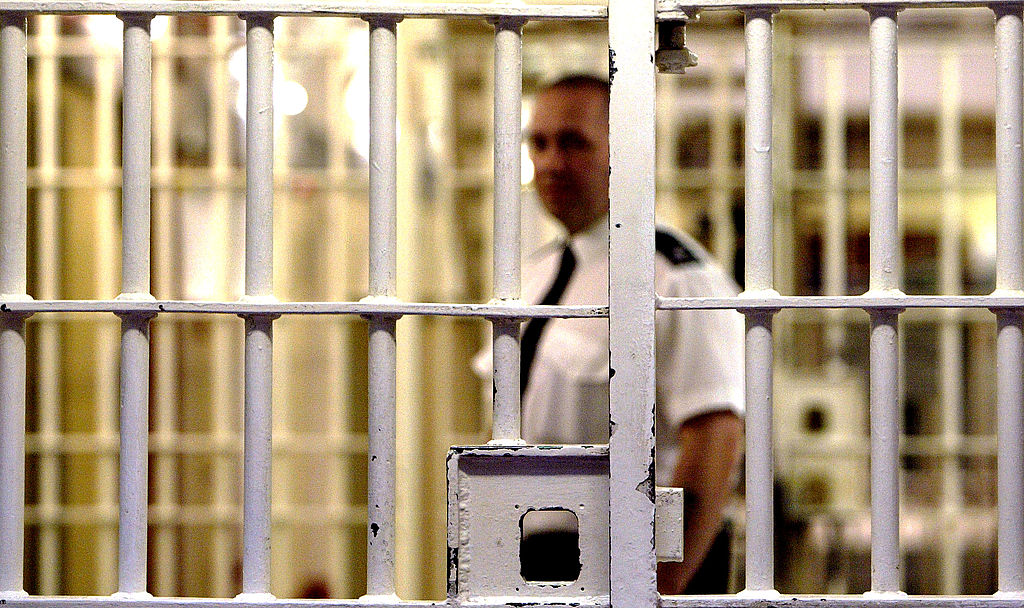Sarah, a 15-year-old victim of sexual exploitation by grooming gangs is pimped out and degraded by scores of men every week, beaten by her exploiters, and alienated from her friends and family. After a year of hell, Sarah is given an option: recruit two more girls for the gang and she can go free. Out of absolute desperation she agrees. But when the gang is finally caught, rather than treated as a victim, Sarah is charged with procurement of girls into prostitution and convicted by a jury.
Amy, a vulnerable young woman is trapped in a relationship with an abusive man who controls her every move. Amy is scared of him and has learned to do what he demands to avoid punishment and violence. This man is a criminal and asks her to hide a weapon he has just used to kill a drug dealer rival. Amy is instructed to lie to police and give him an alibi.
If she refuses, well, she knows he has a gun. The murderer is captured and charged. So, too, is the young woman, charged alongside him in unjust laws of complicity known as ‘joint enterprise’. Amy is convicted and sentenced to life imprisonment, alongside the man who carried out the murder.
Both Sarah and Amy are real case studies, convicted of what is known as joint enterprise, a set of legal principles originating from Victorian times. Its use, which had diminished to just a handful of cases over the years re-emerged in the last few decades. It allows individuals to be convicted of the crime of another if the court decides they foresaw that the other party was likely to commit that crime.
In 2016, a landmark Supreme Court case established that the law had taken a ‘wrong turn’ for the past 30 years. But research published this week by academics at Manchester Metropolitan University found that ‘secondary parties’, in particular women and girls, continue to be convicted as if they directly committed the offence. Perhaps the most shocking finding is that in nearly half of the cases examined, they were not even present at the scene of the crime.
Stories of Injustice reveals that well over 100 women have been sentenced to long prison terms for joint enterprise convictions over the last 16 years. The youngest girl identified by the research was charged at 13 years old. Over a third were young adults when charged; six were children. Most are convicted of serious violent crimes, with over three quarters convicted of murder or manslaughter or related offences. None of the female defendants used a deadly weapon; in the vast majority of cases they engaged in no violence whatsoever. Most of the women are serving long prison sentences at an average of 15 years; some are serving life sentences of up to 30 years.
It looks to me that many of these women are being convicted of hanging out with the wrong crowd and as a result of judgemental sexism, class prejudice and racism, with prosecutors relying on harmful and offensive stereotypes. In one case, the judge commented on a female defendant as ‘a feckless mother of unfortunate children’ for whom ‘the state picks up the pieces of your fecklessness’. No such remarks were made of the father of the same children who was the instigator of the crime.
Many of the women are presented in court as violent and cruel, despite the fact that they played no physical part in the crime. It is quite literally a case of ‘guilt by association’ in many cases. Despite this some examples of how women have been described by the prosecution and subsequent media reporting include: ‘Defiant to the end’; ‘Evil monster of the North East’; ‘Heartless’; ‘feral’; ‘Evil killer’; ‘Monster’; and ‘perverted and sadistic’.
Many of the women convicted under joint enterprise are painted by the prosecution as instigating the crimes, and ‘leading on’ the men that actually commit them. In sexist stereotypes as old as the hills, these women are often described as ‘honey traps’ who are responsible for ‘manipulating’ the men into committing the offence.
Lives are devastated by women being sent to prison which can result in them losing their children, housing, and jobs. It is a classic case of blaming women for men’s actions.
The women convicted on joint enterprise are often victims, both of an injustice and of the men that manipulate, coerce and threaten them to collude or provide an alibi. Very often they have been badly served by the agencies that should be protecting them, and many of the women suffer from mental ill-health. Prisons are full to bursting across the UK. Surely the last thing we should be doing is locking up women who need support rather than punishment?







Comments